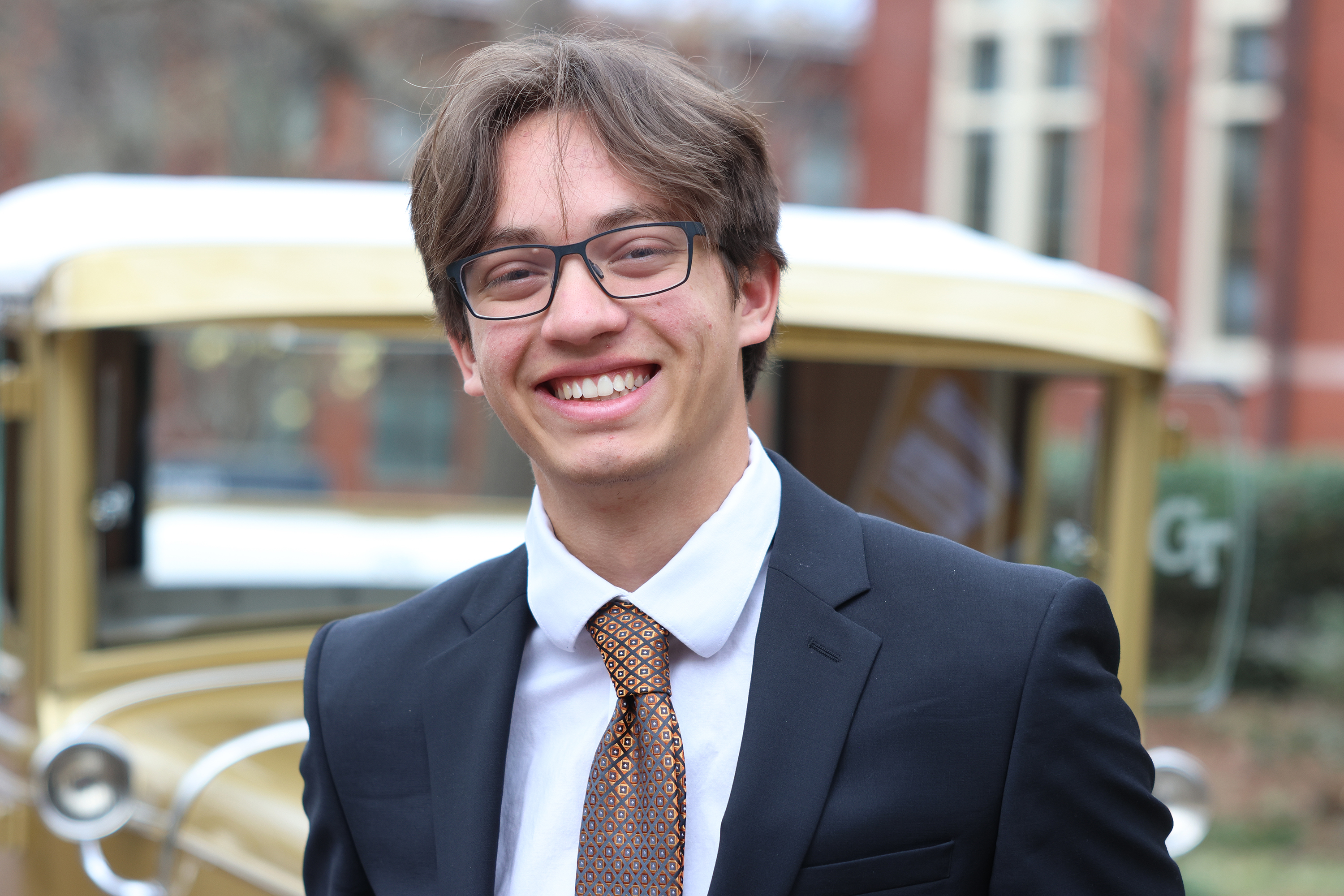
Kiran Kapileshwari Uses Millennium Fellowship to Empower Peers in Climate Policy
November 26, 2025
By Tracie Troha
Kiran Kapileshwari, a fourth-year mechanical engineering student in the George W. Woodruff School of Mechanical Engineering, was selected for the 2025 Millennium Fellowship, a prestigious leadership development program that supports student-led projects advancing the United Nations Sustainable Development Goals. Through the Fellowship, Kapileshwari is creating opportunities for students to engage directly with energy policy and climate action in Georgia, turning awareness into tangible impact.
Kapileshwari proposed a project titled the Climate Policy Youth Network, designed to equip college students with the tools, knowledge, and confidence to participate in climate advocacy. His idea emerged from years of involvement in sustainability initiatives both on and off campus, including the Kendeda Building for Innovative Sustainable Design, Georgia Tech’s Office of Sustainability, and the Amplifiers: Atlanta climate network.
“I’ve seen firsthand how many students care deeply about climate change but don’t always know how to move beyond interest into meaningful impact,” Kapileshwari said. “I’ve had that same passion for years, but it wasn’t until I gained access to certain experiences and networks that I learned how to turn that energy into real change.”
Kapileshwari’s first hands-on experience addressing local sustainability challenges began in middle school, when he established a community garden in a food desert.
“Those experiences gave me proximity, perspective, and a sense of responsibility,” he said.
While his original Millennium Fellowship proposal focused on building a long-term youth policy network, Kapileshwari adapted his project to respond to a pressing, time-sensitive opportunity: organizing a campus summit focused on the Georgia Public Service Commission (PSC), the state body that regulates utilities, energy costs, and climate resilience.
Titled “Voting for Georgia’s Public Service Commission: Your Power Bill, Your Climate, Your Choice,” the summit, held on Oct. 14, brought together students, journalists, and advocates to demystify the PSC’s role and inspire civic participation in an often-overlooked election. Kapileshwari led the event with Georgia Tech’s Students Organizing for Sustainability (SOS) and Energy Club, in collaboration with the media outlet Grist and the Southern Environmental Law Center.
“I started by asking one guiding question: Where can student engagement in climate policy have the most immediate and tangible impact?” he said. “That led me to focus on the PSC, an overlooked but highly influential body that controls energy affordability, utility regulation, and climate outcomes for millions of Georgians.”
The summit’s goals were to raise awareness of the PSC, connect students with experts and advocates, and inspire ongoing civic involvement. To maximize the project’s reach, Kapileshwari tapped into Georgia Tech’s network of sustainability-minded organizations and faculty mentors. He credits the collaborative spirit of campus groups like SOS and the Energy Club for helping him refine programming, broaden outreach, and ensure the summit reflected diverse student perspectives.
“By connecting with a global network of peers and mentors, I gained new perspectives on policy advocacy, stakeholder engagement, and strategic project design that I can carry into future research or leadership opportunities,” he said. “The Fellowship will also strengthen my civic engagement skills, giving me tools and confidence to mobilize communities around sustainability and climate justice.”
Looking ahead, he envisions his project as a model for future civic engagement initiatives at Georgia Tech.
“I hope the Your Power Bill, Your Climate, Your Choice summit leaves a lasting impact by raising awareness about the PSC and empowering students and community members to engage in energy policy and climate advocacy,” he said. “I also hope it creates a replicable model for student-driven policy engagement, showing that even small, coordinated efforts can have meaningful impacts, especially in off-year elections.”
